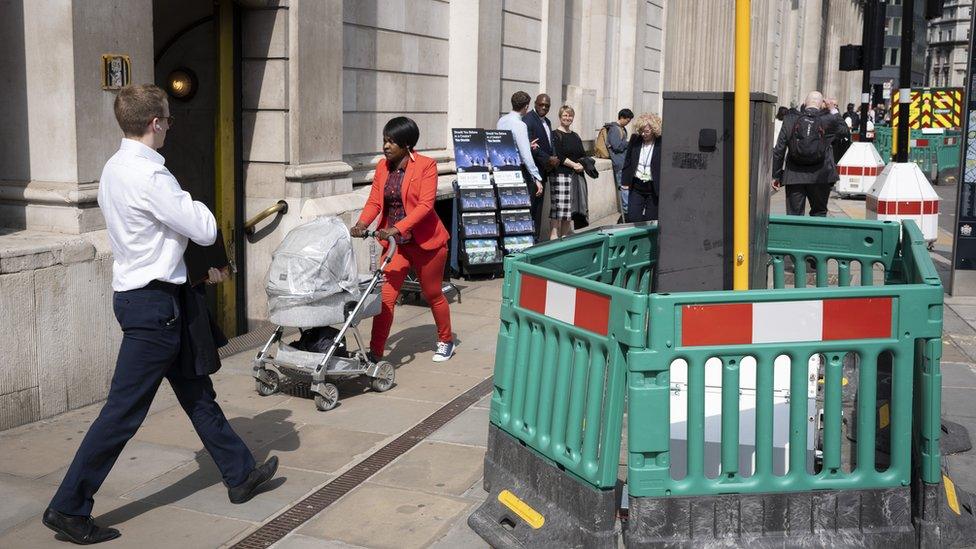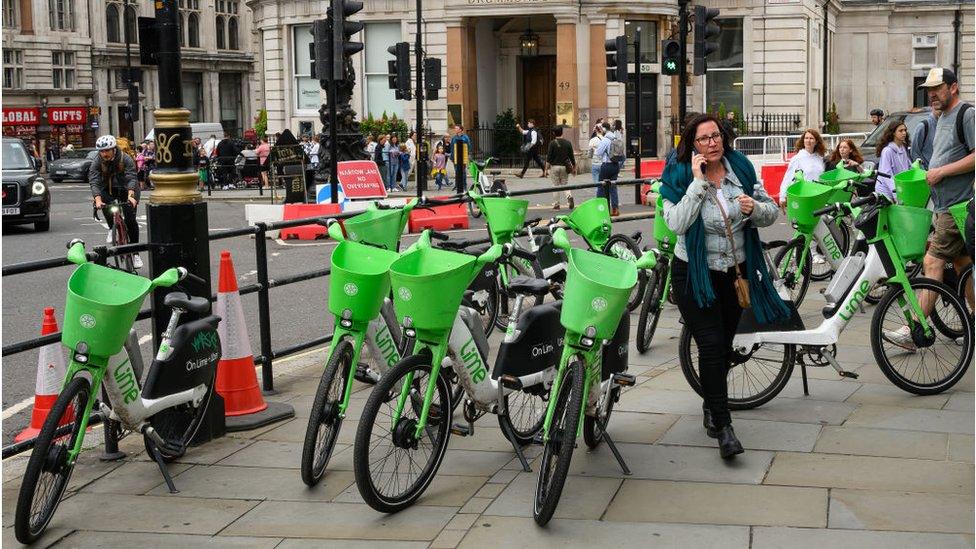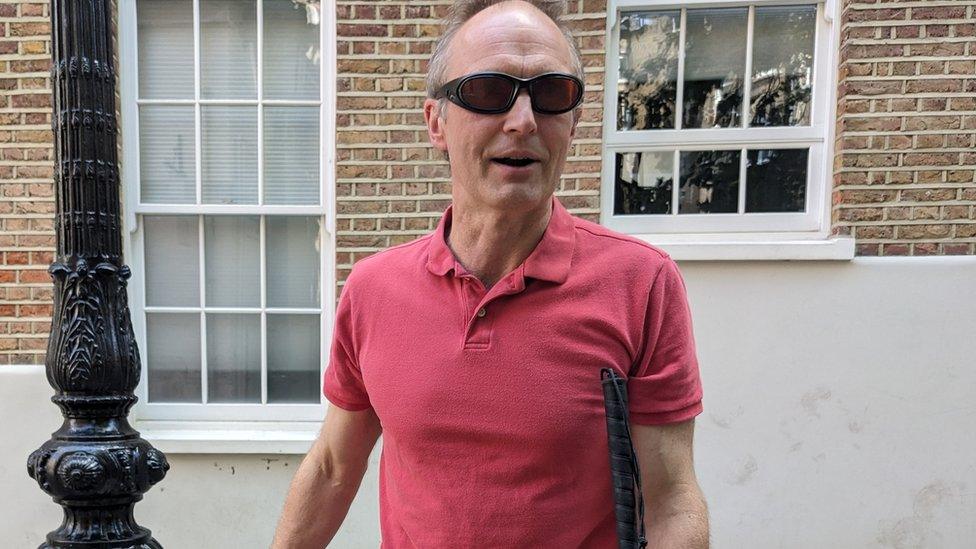London's cluttered pavements are a chronic issue, report finds
- Published

The report found cluttered streets were making London a worse place to live, visit and work in
Central London has "chronic issues" with street clutter, making it a worse place to live, visit and work in, a think tank has warned.
A-boards, disused phone boxes and rubbish bags all make pavements unwalkable, especially for those who are mobility or sight impaired.
Goodge Street in W1, Charing Cross Road in WC2 and Belvedere Road in SE1 were assessed as part of a report.
The Centre for London described it as a "pivotal" equalities issue.
The research suggests unresolved clutter is stopping disabled people having equal access to streets and shops.
The report, called Reducing Street Clutter in Central London, also found the city centre's clutter makes it harder for people to navigate the city, consequently reducing potential footfall for local businesses.
The report recommends that A-boards should be banned, while local authorities should incorporate decluttering strategies into their existing street-related activities and work with business improvement districts to reduce the impact of commercial waste on local streets.

Street clutter
Poorly placed or redundant objects on pavements that negatively affect pedestrians' ability to move around
Specifically applies to the objects on the street that are disused, such as discarded e-bikes and vandalised phone boxes, as opposed to their functional equivalents
Nearly half (47%) of all street clutter was found to have a moderate or severe impact on the walkability of pavements for pedestrians

Millie Mitchell, from Centre for London, said: "London is a fantastic global city, but it isn't going far enough in ensuring everyone can enjoy walking in its city centre equally.
"Our research has revealed the growing accessibility issues that street clutter presents. It's stopping people from walking to where they need to be, and the knock-on impacts are worrying for businesses, for London's net-zero targets, and for disabled Londoners.
"With the right action from government, businesses and local authorities, we can make sure the need to reduce street clutter is taken more seriously. This would make London a role model for urban walkability across the world."

Dockless e-bikes, as well as signs and pavement cafes, add to the clutter

Listen to the best of BBC Radio London on Sounds and follow BBC London on Facebook, external, X, external and Instagram, external. Send your story ideas to hello.bbclondon@bbc.co.uk, external
Related topics
- Published24 August 2023
